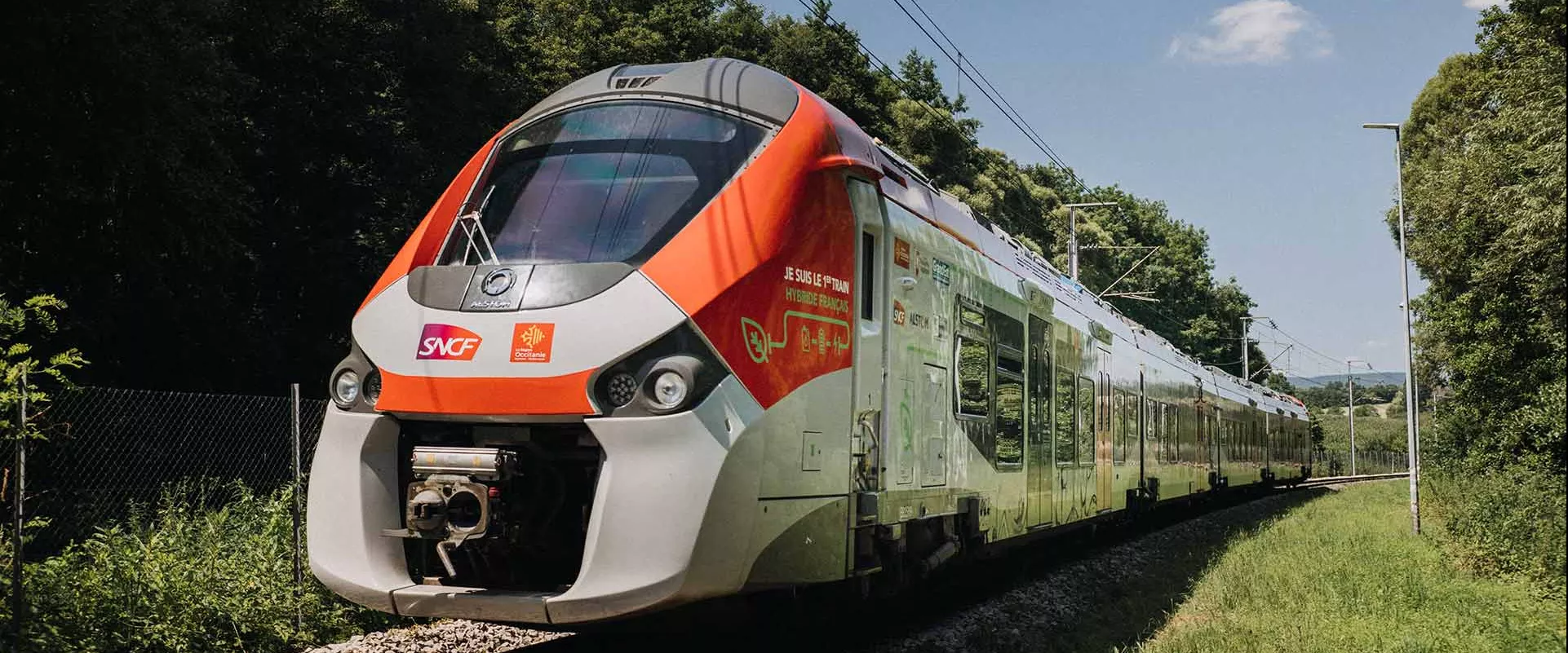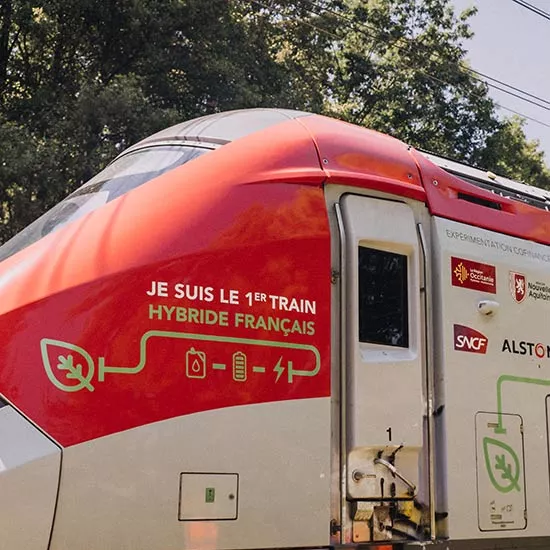
Hybrid TER continues trials in Nouvelle-Aquitaine
In late 2023 and early 2024, a new diesel- and battery-powered regional train successfully carried passengers on non-electrified track around Toulouse, in south-western France. Now this cleaner, more energy-efficient hybrid TER has left the Occitanie region for a new phase of tests in neighbouring Nouvelle-Aquitaine.

TER passengers emit
only 1/8
of the CO2 generated by travelling in a car

A hybrid TER consumes
20%
less energy and emits less greenhouse gases

A total of
€16.8M
was invested in the hybrid TER project
Next steps
Between now and the end of 2024, our hybrid TER will also run in the Grand Est and Centre–Val de Loire regions, both partners in the project.
Developed by Alstom, this next-generation train is France’s first effort to hybridize a multiple unit.
km
successfully covered in commercial service in the 4 partner regions
How it work
Hybrid trains draw on three different energy sources as needed:
- electricity from catenaries
- thermal power from engines
- energy stored in batteries
Hybrid train
From diesel to lithium-ion batteries
In our new dual-mode trainsets—Régiolis units that originally ran on electricity and diesel—half of the thermal engines are replaced with high-capacity lithium-ion batteries. Braking energy previously lost as heat is recovered by the batteries and used to supply traction, lighting and heating. The batteries also boost traction when catenary tension drops below 1.5 kV, and can be recharged with energy from catenaries and the train’s thermal engines.
Recovering 90% of braking energy
This new battery storage system generates significant savings. Braking energy is equivalent to around 30% of traction power on Régiolis routes, and early trials in Occitanie showed that 90% of that energy was recovered.
“This should help us reach one of our top goals: cutting fuel consumption and greenhouse gas emissions by 20%,” says Philippe Adam, hybrid train project leader in our Tech4Rail programme.
To decarbonize TER operations even more, we replaced diesel with hydrotreated vegetable oil (HVO) for the first time during the trial period in Occitanie.
Quiet ride
And the hybrid TER offers passengers yet another advantage: less noise. “In battery-only mode, the train can arrive and depart silently. That’s particularly important in stations with canopies, such as Toulouse, Castres and Rodez,” says Philippe Adam.